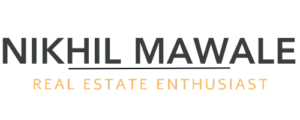Smarter home technology is revolutionizing the real estate industry at warp speed. Such innovations don’t only make life easier for home buyers but also change how properties are marketed, appraised, and sold as we move into deeper 2025. In this blog, we look at the innovative smart home trends that will dictate the future of real estate.
Understanding the Smart Home Advantage in Real Estate
Since today’s competitive real estate market requires, smart home technology and property value must be known deeply to anyone, but not a luxury, it is a necessity. It is an effort here to provide real estate professionals and prospective homeowners with a complete picture of how smart solutions are quick to rise to the level of pillars of foundations based on facts regarding the current market realities and technological forecasts. Ranging from intelligent security to ecological living, the use of smart technology is transforming modern living and investing possibilities.
(This blog is written by Nikhil Mawale, the best property advisor in Pune understands your dreams, offering expert guidance, exclusive deals, and smart plans for homebuyers and investors.)
Living Smarter, Selling Faster
Smart home technology offers tangible benefits that translate directly into enhanced living experiences for residents and compelling selling points for properties.
Key Smart Home Trends Defining 2025:
- Enhanced Home Security: The Top Priority Security is at the forefront of homebuyers’ minds, and tomorrow’s homes in 2025 are providing record-breaking peace of mind.
- Advanced Features: Universal deployment of facial recognition for access control, sophisticated motion detection capabilities, and unrestricted remote surveillance.
- Selling Point: Such systems provide a major selling point, especially given that potential customers are happy to pay extra for homes that incorporate state-of-the-art security.
- Sustainable Living: The Eco-Conscious Appeal
As environmental awareness grows, smart homes are increasingly incorporating eco-friendly technologies, aligning with the global push for sustainability.
- Eco-Features: From highly energy-efficient appliances to intelligent thermostats that optimize climate control and integrated solar energy solutions, these features significantly reduce utility bills.
- Buyer Appeal: Such innovations strongly resonate with environmentally conscious buyers, who seek homes that minimize their carbon footprint and offer long-term savings.
- Seamless Connectivity: The Power of IoT
The Internet of Things (IoT) continues to be the backbone of the smart home, enabling effortless integration and control across a multitude of devices.
- Unified Control: Homeowners can intuitively manage lighting, heating, cooling, entertainment systems, and even kitchen appliances via smartphones or voice assistants.
- Convenience & Efficiency: This seamless connectivity dramatically enhances daily convenience and operational efficiency, making homes truly responsive to residents’ needs.
- AI-Driven Personalization: The Intuitive Home
Artificial Intelligence (AI) is pushing the boundaries of smart homes by learning and adapting to residents’ unique habits and preferences.
- Predictive Comfort: AI-driven systems can intelligently adjust lighting, temperature, and even suggest entertainment options based on a homeowner’s routine and mood.
- Tailored Experience: This level of personalization creates a living environment that feels uniquely attuned to its occupants, fostering a sense of bespoke comfort.
Physical Benefits to Home Owners and Buyers:
• Unrivaled Convenience: Being able to regulate various sections of the home from wherever one is simplifies living, ranging from pre-cooling the home on arrival to programmable routine control like lighting timers.
• Meaningful Energy Efficiency: Energy-efficient devices and smart thermostats are guaranteed to save energy, which will translate into enormous amounts of money saved on utility bills—a great attraction for budget-savvy and eco-friendly consumers.
• High Peace of Mind & Security: Advanced security features provide an added layer of security, safeguarding homes and securing them. That added peace of mind is a great selling point.
• Increased Property Value: Houses that come equipped with embedded smart technology always fetch a premium. These types of features are regarded as contemporary, desirable updates and appeal to tech-conscious buyers and future-proof the asset.
Leveraging Smart Technology in Real Estate Sales
For real estate agents, smart home technology presents a powerful toolkit to enhance property appeal and drive successful sales.
· Immersive Virtual Tours: Harness virtual reality (VR) and augmented reality (AR) to provide potential buyers very engaging property tours. Remote touring saves both time and reach for a global client base. It suits the expectations of contemporary purchasers for online engagement.
- Highlighting Smart Features Strategically: Emphasize the smart home prominently in all marketing materials, including listings on the internet and pamphlets. Detailed descriptions and live demonstrations of the manner in which these technologies operate can generate more interest and justify a higher price asking.
- Data-Driven Insights for Tailored Marketing: Leach data analysis, or even better, smart home device usage insights (with proper privacy issues sorted out), to learn more about buyer preference. That will enable agents to personalize marketing better, highlighting the features most in demand among their target market.
The Future of Real Estate is Smart
The adoption of smart home technology into the property selling sector is no flash in the pan but evolutionary change that is redefining property ownership and buying. With improved security, improved energy efficiency, and unmatched convenience, smart homes are the new norm.
For homeowners, these technologies translate to a more comfortable, productive, and secure home life. For real estate agents, the proactive use and marketing of these innovations are crucial in order to compete, attract an increasingly valuable niche of technology-literate buyers, lock in higher property values, and close more successful transactions in 2025 and beyond.
Read More : Buy vs. Rent: Insights from a Real Estate Consultant to Make the Right Choice
Carpet Area vs. Built-Up Area: Understanding the Differences


